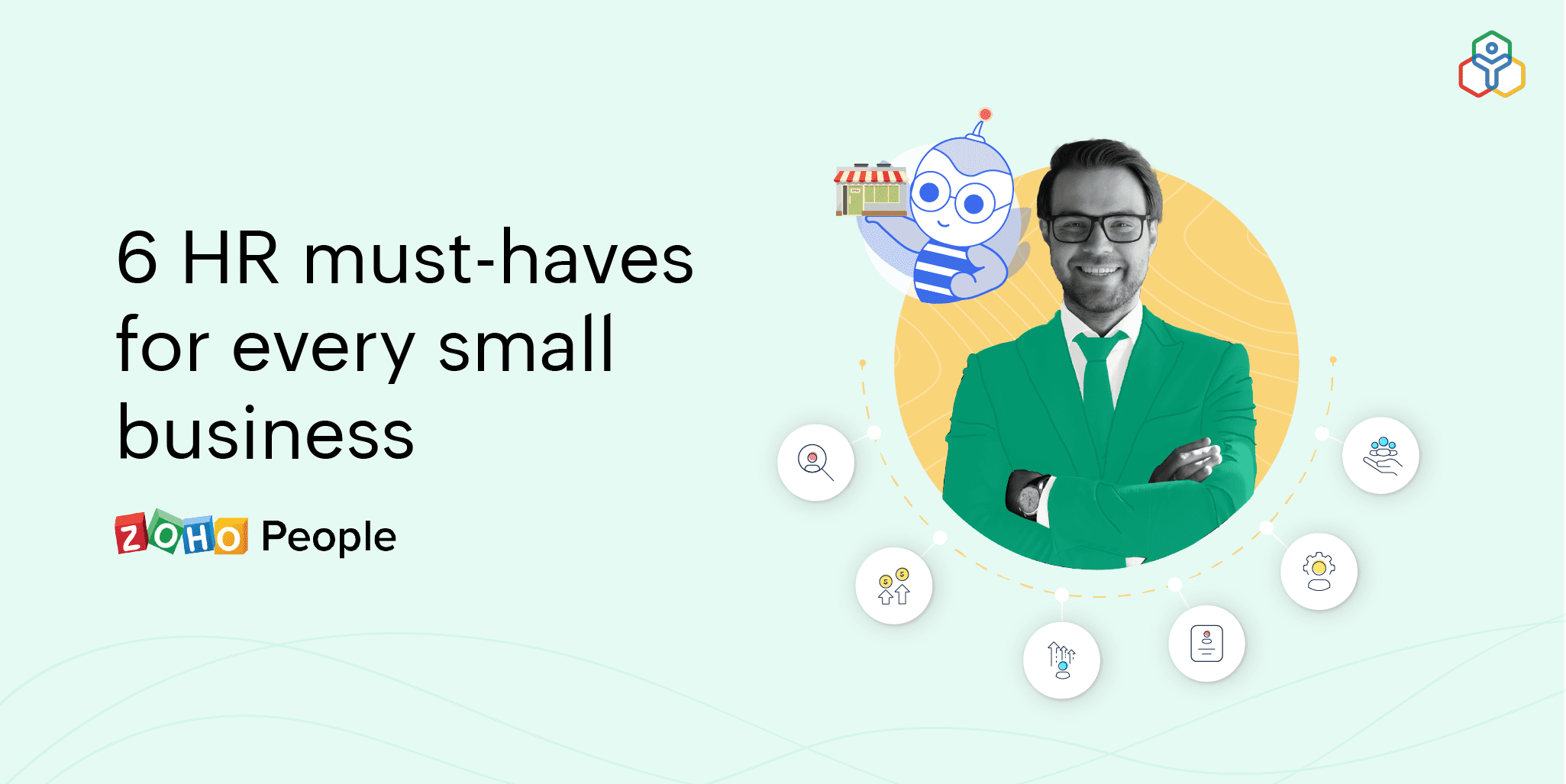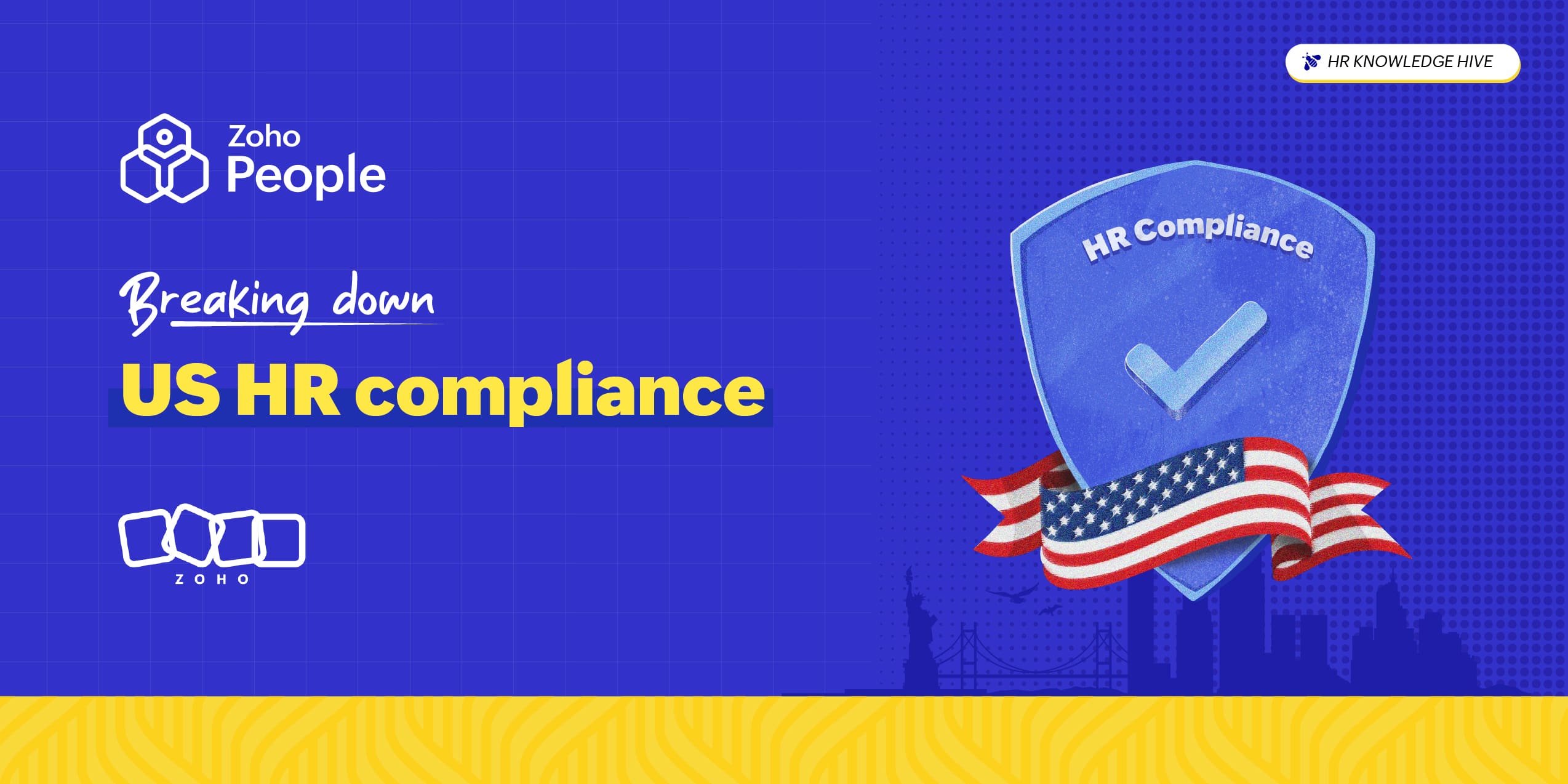- HOME
- More
- HR for SMBs
- 6 HR functions to prioritize as a small business owner
6 HR functions to prioritize as a small business owner
- Last Updated : August 23, 2023
- 1.6K Views
- 6 Min Read

As a small business owner, you probably have a lot on your plate. Between the turbulent economy, the challenges caused by the pandemic, and potentially new working conditions for your employees, HR has become an especially large operation. Without setting strong priorities, even routine people management tasks will overwhelm you and your team, leading to a workplace that is chaotic and disorganized regardless of how much time, energy, or money you put in. If you are trying to distinguish what's important and what's not for your small business, we've got you covered. Here are 6 important HR tasks that every small business should include in their HR checklist to start out on the right foot:
Hiring
Your employees are the most valuable assets to your organization. That's why it's important to regularize your hiring process and make sure to provide an exceptional candidate experience. This will improve your employer brand, create a great perception about your organization among your candidates, and help you hire people who add to the culture of your organization.
Before the hiring process begins, have a meeting with the team's manager to better understand what to look for in your candidates. Encourage your existing employees to spread the word and refer talented individuals who would fit the role and enjoy the culture of the organization. It's also important that you keep your hiring process as easy and transparent as possible. Post clear job descriptions that truly reflect the nature of the job you are hiring for. Keep your candidates informed about what they should expect before every round, and ensure all candidates understand why they were or were not selected for the position.
Benefits and compensation
To attract and retain top talent, your compensation and benefits should be on par with industry standards. Otherwise, the turnover rate in your organization will skyrocket, your business may lose big opportunities, and you will have to spend a huge amount of resources on recruiting and training new employees. Analyze how the work of each employee adds to your organization's bottom line, and communicate how that value drives the pay structures at your organization. This is especially important for any role you have where two people may be paid differently despite having the same title.
When it comes to benefits, PTO, health insurance, retirement plans, paid vacation, and education reimbursement are becoming increasingly necessary just to stay competitive as an employer. If you are operating on a tight budget, ask your employees which benefits they value most and choose ones that are consistent with their needs.
A note of caution: Just providing competitive benefits and compensation is not enough to retain talent. How you treat your employees on a daily basis and support their needs matters as much as compensation.
Employee development
For all the hard work that your employees put in to grow your small business, they expect you to help them climb up the career ladder at your organization. Showing interest in their development can help improve your employees' morale and satisfaction, and they will be more likely to go above and beyond to take your organization to the next level.
In a small business, some employees may be forced to take on new roles due to the resource crunch. During times like these, it's important to provide adequate training to help employees understand the expectations of their new role. Even if this is not the case in your business, it's good to make learning an innate part of your organizational culture so that employees can improve their skill set and contribute more towards your business development. If you are wondering where to start, here's one blog that explains how small businesses can organize training and development programs.
It's also good to conduct performance reviews regularly to let your employees know how far they've come in contributing toward the organization's success and improving their own skills. Encourage managers to provide meaningful feedback that'll help employees improve their work. Foster a culture of recognition where managers, employees, and their peers appreciate and recognize each other's work. All of these things will develop a growth mindset in your employees.
Routine HR processes and tasks
Making your everyday HR processes friction-free is one of the most important tasks that you'll have to spearhead to ensure compliance with labor laws and make administrative tasks less frustrating for your teams. Employees shouldn't have to come to you or your HR team lead to clarify every concern they have regarding these processes. They should be simple enough to manage by employees of any age or skill level, which means that the tools you use for these tasks should also be easy to understand.
For example, it's vital that you establish a system to track employee attendance accurately. Inform employees when they are supposed to report, how many hours they are expected to work, and how they are supposed to check in and check out every day. Develop a similar process for leave and time off, too. Have proper leave policies in place based on the employment laws governing your region. Make your employees aware of the policies along with the procedure to apply for leave. Payroll is another area that should get be as clear and easy as possible. Streamline payroll calculation to make sure there are no errors in the process. To learn more about how to do this, check out our blog on the different steps involved in payroll calculation.
HR technology
As a small business, you may only have two or three HR professionals on your team. With a lean HR team, manually managing employee attendance, leave, payroll, inquiries/requests, timesheets, and more on ten or fifteen different spreadsheets can be super overwhelming. Your employees will not like engaging with outdated processes that suck a good amount of their time away from high-stakes projects and tasks. This is where HR technology comes in handy.
With HR software in place, you don't have to worry about compliance issues, repetitive paperwork, payroll challenges, or other time-consuming administrative tasks. If you are wondering what HR technology, like an HR information system (HRIS), can do for your organization, here's a complete guide to choosing the best HRIS software. It elaborates on the basics of an HRIS along with the features to look out for and tips to make selecting an HRIS simple and effective.
HR data management
Employee data has to be managed in a way that ensures your organization is audit-ready throughout the year. It's important to organize all their information in a single system so that you can find it whenever necessary. Additionally, processing this data efficiently can give your small business all the insights required to make key decisions and level up your people management game. For instance, using performance data, you can analyze what is stopping some of your employees from working to their full potential and what is motivating some employees to go above and beyond. With recruitment data, you can understand where to look for candidates who are suitable for your roles.
When you are just starting your small business, leveraging data and reporting can help you invest in processes that truly add value to your business. For this, all you need is an intuitive data management and reporting system that comes with your HR software of choice.
Final thoughts
As a small business, dedicating your time to optimizing the most important HR processes will add the most value to your employees and help them work better for your organization. We hope this blog gave you insight on the 6 HR must-haves for every small business!
Also Read: 5 reasons why every small business needs an HR department
 Tarika
TarikaContent Specialist at Zoho People


